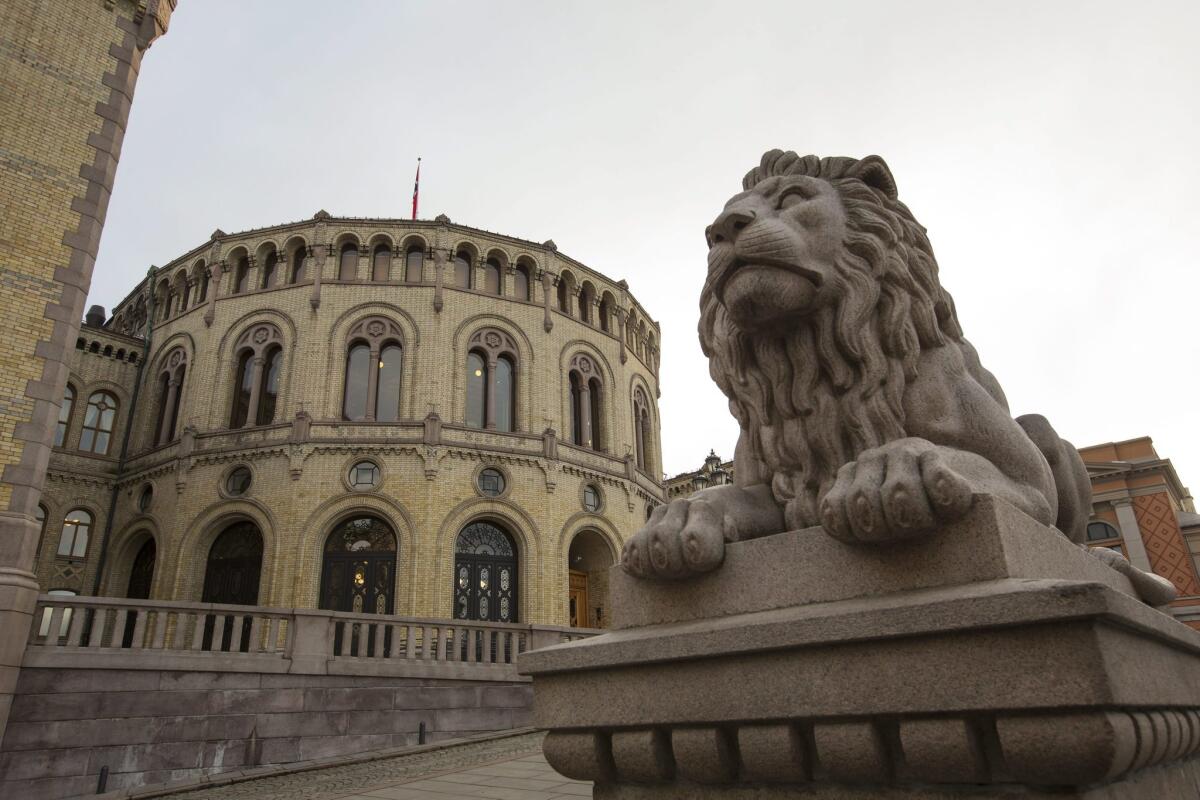Obama donor George Tsunis ends his nomination as Norway ambassador

- Share via
Reporting from Washington — A tough year has come to a melancholy end for Obama mega-donor George J. Tsunis.
Nominated last December to be U.S. ambassador to Norway, the Long Island hotelier fumbled questions about the country at his confirmation hearing in January. Indignant Norwegian Americans mobilized to persuade Midwestern senators to vote against him, and Republicans sought to make him a symbol of what they see as the Obama administration’s poor choices for ambassadorial posts.
With the congressional session winding down and confirmation still in doubt, Tsunis decided this week to withdraw his nomination.
“I have elected not to renew my nomination for the next Senate session as I did last year, and will let the nomination expire,” Tsunis said in an email Saturday afternoon. Noting the months that have passed since he was nominated, he added, “It is too long not to have an ambassador in any country.”
Tsunis contributed or solicited a total of $1.3 million for President Obama’s campaign in 2012, after giving $50,000 to Obama’s rival in the 2008 presidential race, Sen. John McCain (R-Ariz.).
In his hearing, Tsunis referred to Norway’s president, though the country doesn’t have one. He described the mainstream Progress Party as composed of fringe voters who “spew their hatred.”
Scandinavian Americans aren’t generally considered a lobbying powerhouse in Congress. But angry Midwesterners persuaded Democratic Sens. Amy Klobuchar and Al Franken of Minnesota, Tim Johnson of South Dakota and Heidi Heitcamp of North Dakota to vote against the nomination.
T. Michael Davis, a Minnesota lawyer who helped organize the campaign against Tsunis’ nomination, said Saturday he sympathized with Tsunis but considered the result for the best.
“Instead of seeing Norway denigrated, both countries embarrassed, strategic interests jeopardized in an area where Russian aggressiveness has become a daily occurrence, and putting real business, diplomacy and exchange on hold for the next two years, we can now look forward to what we hope will be a qualified and knowledgeable individual” for ambassador, Davis wrote in an email.
Stumbles by other “ambassadonors” have played into a Republican narrative that the administration has been giving too many plum assignments to financial contributors.
Colleen Bradley Bell, approved this month as ambassador to Hungary, is a producer of the CBS soap opera “The Bold and the Beautiful” who raised $2.1 million for Obama. She fumbled questions about U.S. strategic interests in Hungary.
Businessman Noah Bryson Mamet, confirmed to be ambassador to Argentina, had never been to the country and showed little knowledge of its workings in his confirmation hearing.
McCain exploded in anger at Bell’s hearing, saying the administration should know better than to pick a “totally unqualified candidate” at a time when Hungary was taking a troubling turn toward authoritarianism.
The Obama administration has given more ambassadorial posts than average to political choices, and fewer to career foreign service officers.
Usually presidents give about 30% to political figures, compared with Obama’s 35%, according to the American Foreign Service Assn. In his second term, Obama has given 41% of the jobs to political appointees.
Fundraisers generally prefer posts in tidy European countries or sunny Caribbean ones. The White House has sent political choices to every one of the five Scandinavian countries.
The Obama administration appeared in its first year to be resisting calls to give such posts to donors. But the pressure is strong because they are posts that donors covet as reward as political campaigning requires ever more money.
The issue is less clear-cut than it looks, since political appointees often include go-getting businesspeople and lawyers who turn out to be good at the job.
These include John V. Roos, a technology lawyer who was Obama’s first ambassador to Japan. And sometimes the host country likes a celebrity ambassador, such as Caroline Kennedy, the current ambassador to Japan, though she had little background related to the country when chosen last year.
Times staff writers Michael A. Memoli and Lisa Mascaro in Washington contributed to this report.
Twitter: @richtpau
More to Read
Sign up for Essential California
The most important California stories and recommendations in your inbox every morning.
You may occasionally receive promotional content from the Los Angeles Times.














